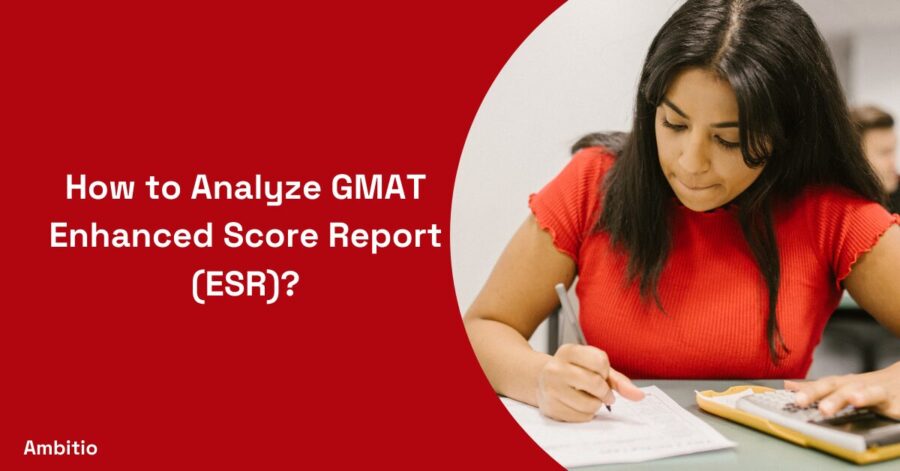4 September 2024
7 minutes read
GMAT vs CFA Difficulty – Which is right for you?

Key Takeaways
- MBA offers broad business leadership opportunities, ideal for aspiring executives and entrepreneurs across various industries.
- CFA provides deep specialization in finance and investment, perfect for careers in asset management, banking, and financial analysis.
- MBA for management roles and CFA for finance-focused professions.
When it comes to advancing your career in business, finance, or management, two prominent paths often come up: pursuing an MBA with the help of the GMAT (Graduate Management Admission Test) or earning the CFA (Chartered Financial Analyst) designation.
Both are prestigious and can significantly impact your professional journey. But how do they compare in terms of difficulty? Let’s dive into a detailed comparison to help you understand which might be more challenging and why.
What is GMAT?
The GMAT is a standardized test required for admission to most business schools. It assesses your analytical writing, quantitative, verbal, and integrated reasoning skills. Here’s a breakdown of the GMAT test format:
- Analytical Writing Assessment (AWA): This section involves writing an essay that analyses an argument. It measures your ability to think critically and communicate your ideas.
- Integrated Reasoning (IR): This section tests your ability to evaluate information presented in multiple formats from multiple sources.
- Quantitative: This GMAT math section tests your mathematical skills, including arithmetic, algebra, and geometry.
- Verbal: This section measures your ability to read and understand written material, reason and evaluate arguments, and correct written material to conform to standard written English.
Note: The GMAT is scored on a scale of 200-800, with most top business schools requiring a GMAT max score of 600-700s.
What is CFA?
The CFA program is a professional credential offered by the CFA Institute, primarily aimed at investment and finance professionals. It is divided into three levels, each culminating in a rigorous exam. Here’s what each level entails:
- Level I: This focuses on basic knowledge and comprehension of investment tools, ethical and professional standards.
- Level II: This emphasizes the application of investment tools and concepts, focusing on asset valuation.
- Level III: This focuses on portfolio management and wealth planning, requiring a deep understanding and synthesis of the material.
Each level of the CFA exam is known for its depth and complexity, and candidates are often advised to dedicate at least 300 hours of study per level. Achieving the CFA designation signifies a high level of expertise and commitment in the finance industry.
Differences between CFA and MBA

Just like understanding the similarities it is important to know the difference between GMAT and CFA to make a better choice.
| Aspect | GMAT | CFA |
|---|---|---|
| Purpose | Admission to MBA programs, especially in business management and leadership | Credential for finance and investment professionals |
| Focus | Business management, quantitative and GMAT verbal skills | Finance, investment analysis, and portfolio management |
| Curriculum | MBA curriculum covers a broad range of business topics | CFA curriculum focuses deeply on financial analysis, ethics, and investment management |
| Structure | Single standardized test | Divided into three levels of exams |
| Time Commitment | Approximately 2-3 months of GMAT preparation | Around 300 hours of study per level, totalling 900+ hours |
| Difficulty | Known for its rigorous and GMAT adaptive format | Highly demanding, requiring deep knowledge and extensive preparation |
| Career Paths | Provides a broad business foundation for roles in various industries | Specialized in finance, suitable for careers in asset management, investment banking, and more |
| Professional Value | High MBA salary potential in business management and leadership | High value as a CFA charter-holder in finance and investment sectors |
| Flexibility | Suitable for full-time, part-time, and executive programs | Often pursued alongside professional work |
| Fees and Materials | Significant costs for test prep, MBA programs typically include fees and study materials | Fees for each level, plus exam prep materials provided by the CFA Institute |
| Networking | Extensive alumni networks through MBA programs | Strong professional network through the CFA Institute |
| Exam Format | Verbal, quantitative, analytical writing, and integrated reasoning sections | Multiple-choice, item set, and essay questions across three levels |
| Pass Rates | No specific pass rate, score-based. However, the average GMAT score is around 560, with top business schools often requiring scores above 700. | Pass rates for each level are relatively low, indicating difficulty. As of recent data, the pass rates for the CFA exams are approximately: Level I: 42% Level II: 45% Level III: 56% |
| Credential Value | Earning an MBA provides diverse career opportunities | Earning the CFA charter signifies expertise in finance and investment |
| Study Approach | Practice tests and adaptive learning | Requires deep study and understanding of the CFA curriculum |
| Relevant Exams | GMAT vs. CFA debate often centres on different career paths | CFA vs. MBA debate highlights specialized finance versus broad business education |
| Preparation Resources | Extensive test prep and MBA curriculum resources | Exam prep materials and support from the CFA Institute |
| Role Requirements | Pursuing an MBA often leads to leadership roles in various industries | Becoming a chartered financial analyst is essential for specialized finance roles |
| Exam Prep | Adaptive and varied practice tests | Requires consistent study and preparation for each level of the CFA exam |
| Career Goals | Based on your career goals, choose between broad business education or specialized finance | Depends on your career goals and interests whether to pursue the CFA or an MBA |
| Global Recognition | Widely recognized for business management and leadership | Globally recognized as a leading finance and investment credential |
| Credential Benefits | High potential MBA salary and leadership opportunities | High value as a CFA charter-holder with expertise in finance and investment |
| Networking Opportunities | MBA programs offer extensive alumni networks | Strong professional network through the CFA Institute |
Career Opportunities After Completing an MBA
Completing an MBA opens numerous career opportunities, ranging from mid-level management to executive positions across various industries. Here’s a detailed look at potential job roles, positions by hierarchy, and associated salaries:
| Job Hierarchy | Job Role | Salary Range (per year) | Description |
|---|---|---|---|
| Entry-Level | Business Analyst/Consultant | $70,000 – $90,000 | Analyse business operations, recommend improvements, and help implement solutions. |
| Marketing Manager | $80,000 – $100,000 | Develop marketing strategies, manage campaigns, and oversee marketing teams. | |
| Mid-Level | Operations Manager | $90,000 – $110,000 | Oversee production, logistics, and daily operations to improve efficiency. |
| Financial Manager | $100,000 – $130,000 | Manage financial planning, reporting, and investment activities. | |
| Product Manager | $95,000 – $120,000 | Lead product development, strategy, and lifecycle management. | |
| Senior-Level | Director of Operations | $120,000 – $150,000 | Direct overall operational strategies and ensure alignment with business goals. |
| Finance Director | $130,000 – $160,000 | Oversee financial policies, manage budgets, and lead financial strategy. | |
| Executive | Chief Executive Officer (CEO) | $180,000 – $250,000+ | Lead the organization, set strategic direction, and make high-level decisions. |
| Chief Financial Officer (CFO) | $170,000 – $220,000+ | Direct financial planning, manage financial risks, and oversee financial operations. | |
| Chief Marketing Officer (CMO) | $160,000 – $210,000+ | Develop and implement marketing strategies, manage marketing teams, and drive brand growth. | |
| Additional Roles | Entrepreneur | Varies widely | Start and manage your own business, applying strategic and operational skills gained from the MBA. |
Career Opportunities After Completing CFA
CFA charter-holders benefit from high earning potential, extensive career advancement opportunities, and roles that leverage their deep expertise in finance, investment analysis, and portfolio management.
| Job Hierarchy | Job Role | Salary Range (per year) | Description |
|---|---|---|---|
| Entry-Level | Junior Financial Analyst | $60,000 – $80,000 | Assist in financial analysis, prepare reports, and support senior analysts. |
| Equity Research Analyst | $70,000 – $90,000 | Conduct research on equities, analyze financial statements, and provide investment recommendations. | |
| Mid-Level | Senior Financial Analyst | $80,000 – $120,000 | Perform detailed financial analysis, create investment models, and support portfolio managers. |
| Portfolio Manager | $90,000 – $140,000 | Manage investment portfolios, make buy/sell decisions, and optimize asset allocation. | |
| Investment Banking Associate | $100,000 – $150,000 | Advise on mergers and acquisitions, capital raising, and financial restructuring. | |
| Senior-Level | Director of Research | $150,000 – $200,000 | Lead research teams, develop research strategies, and ensure high-quality analysis. |
| Senior Portfolio Manager | $150,000 – $220,000 | Oversee large portfolios, develop investment strategies, and manage client relationships. | |
| Executive | Chief Investment Officer (CIO) | $200,000 – $300,000+ | Direct investment strategies, manage investment teams, and oversee large-scale portfolios. |
| Chief Financial Officer (CFO) | $170,000 – $250,000+ | Direct financial planning, manage financial risks, and oversee financial operations. | |
| Head of Asset Management | $200,000 – $280,000+ | Lead asset management division, develop strategic plans, and drive investment performance. | |
| Additional Roles | Risk Manager | $90,000 – $130,000 | Identify and assess financial risks, develop risk mitigation strategies, and ensure compliance. |
| Wealth Manager | $90,000 – $140,000 | Provide personalized investment advice, manage client portfolios, and develop wealth strategies. |
MBA vs CFA – Salary
The salary potential for MBA graduates and CFA charter-holders varies based on their roles and industries. MBA graduates often move into leadership and executive positions in management consulting, corporate finance, and marketing, with salaries ranging from $80,000 to over $250,000 annually, depending on experience and position.
In contrast, CFA charter-holders typically occupy specialized finance roles such as financial analysts, portfolio managers, and investment bankers, with salaries ranging from $70,000 to over $300,000 annually. While both credentials offer high earning potential, the choice between an MBA and CFA should align with one’s career goals and industry preferences.
CFA vs MBA – Which is right for you?
Choosing between an MBA and a CFA depends on your career goals and interests.
MBA: Ideal for those seeking a broad business education and leadership roles across various industries. MBA programs cover diverse topics like management, marketing, finance, and operations, making them suitable for aspiring executives, entrepreneurs, and consultants. The time commitment typically involves two years of full-time study, though part-time and executive MBA programs without GMAT are available.

CFA: Best for individuals aiming to specialize in finance and investment. The CFA program focuses on financial analysis, portfolio management, and ethical standards, making it suitable for careers in asset management, investment banking, and financial advisory. It requires passing three rigorous exams, each demanding around 300 hours of study, and can take several years to complete.
Ultimately, if you aim for diverse business management roles, an MBA is the right choice. If you prefer a focused career in finance and investment, the CFA is the better path.
Which is more in demand now? MBA or CFA
Currently, the demand for both MBA professionals and CFA charter-holders is strong, but it varies by industry.
MBA Professionals: Highly sought after in management consulting, corporate leadership, technology, healthcare, and entrepreneurship. Companies value the broad business acumen and leadership skills that MBA graduates bring.
CFA Charter-holders: In high demand in finance-related fields such as investment banking, asset management, hedge funds, and financial advisory. The specialized financial expertise and rigorous training of CFA charter-holders are highly prized.
Ultimately, the demand depends on the industry and specific roles. For broad business leadership and management, MBAs are preferred, while for specialized finance roles, CFAs are more in demand.
Conclusion
Both the MBA and CFA offer unique and valuable career opportunities tailored to different professional paths. Choosing the right credential depends on your career goals, interests, and industry demands. Whether you seek broad business leadership or specialized finance expertise, each path offers significant potential for advancement and success.
Ambitio Pro is crafting tomorrow’s business leaders today. Join our community to benefit from personalized mentorship, strategic training, and leadership programs designed to hone your decision-making, management, and innovation skills.
FAQs
Can I study for the GMAT while working full-time compared to the CFA?
Yes, many people prepare for both tests while working full-time. The GMAT is more manageable in shorter timeframes, while the CFA requires more extended, consistent study periods across years.
Which test is more expensive, GMAT or CFA?
The GMAT costs around $250, while the CFA exam costs vary by level and registration time, totalling between $2,000 and $4,000, including study materials.
What skills do I need to pass the GMAT versus CFA?
The GMAT requires strong analytical, verbal, and quantitative skills, while the CFA demands deep knowledge of financial analysis, portfolio management, and ethics.
Do I need work experience for the GMAT or CFA?
Work experience isn’t required for the GMAT, though it’s often needed for MBA programs. The CFA typically requires relevant work experience for certification.
Which has more job opportunities, an MBA (GMAT) or CFA?
MBAs open doors to a broad range of business roles, while the CFA is more specialized in finance. It depends on your career goals—leadership roles for MBA, finance-specific roles for CFA.
What are the pass rates for the GMAT compared to the CFA?
The GMAT doesn’t have a pass/fail system; it’s score-based, with an average score of 560. CFA exams have relatively low pass rates, around 40-50% for each level.

You can study at top universities worldwide!
Get expert tips and tricks to get into top universities with a free expert session.
Book Your Free 30-Minute Session Now! Book a call now




























